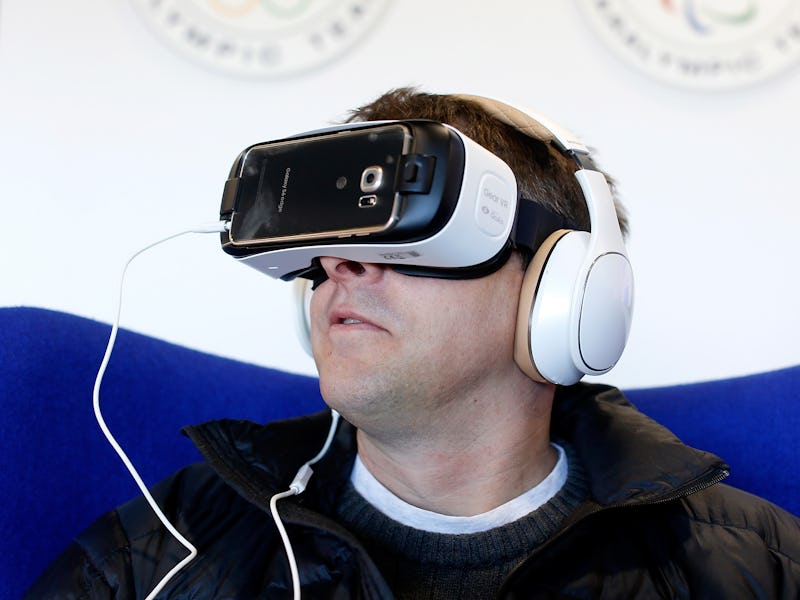Virtual Reality Has the Potential to Help With Depression
A new study demonstrates VR might help foster self-compassion over self-criticism.

Virtual reality and human psychology mesh surprisingly well — VR enables phobics to address their fear of, say, spiders with nary a living arachnid in sight. Veterans can tackle post-traumatic stress by revisiting war zones in safe, digital environs. And a new study demonstrates that people with depression might be able to benefit from a positive VR experience.
The caveat: This is much closer to concept than clinical trial, as there were only 15 participants. For the study, a team of European researchers took advantage of virtual reality’s illusory powers to have subjects therapeutically comfort themselves. Because extreme self-criticism can be a psychic crack that splinters into depression, the psychologists wanted to create a scenario in which users become compassionate to a third party. The twist here is that the third party is the user.
As the scientists wrote in British Journal of Psychiatry Open on Tuesday, it worked like this: Subjects, upon donning a VR headset, encountered a sad virtual child in a room with a mirror. They would practice consoling the child while seeing their digital reflections. Then, the viewpoint would shift, so that participants were looking through the eyes of the child, watching and listening to a recording of their own comforting. The result is that each person was, essentially, the only actor in a play where an adult avatar treated a child avatar kindly.
The VR experience, about eight minutes long, was repeated three times a week. A month afterward, nine of the 15 participants reported fewer symptoms of depression, and, in four instances, the authors describe the positive change as “clinically significant.”
This experiment underscores the idea that laying a virtual body over our own can give a powerful illusion of ownership. It’s also one more example of the way virtual experiences exert influences on our real lives — take this psychological experiment at Stanford University recently cited by New York magazine. In this experiment people who had just flown through a video game like Superman were more likely to help clean up pens that an actor knocked on the floor than people who’d played a game as helicopter passengers.
Being Superman for a spell is going to make you feel like you should keep acting the hero a lot more than sitting around on a helicopter. Same goes with acting compassionately toward a virtual reality kid — if we can fake the feels, they may bleed into real life.